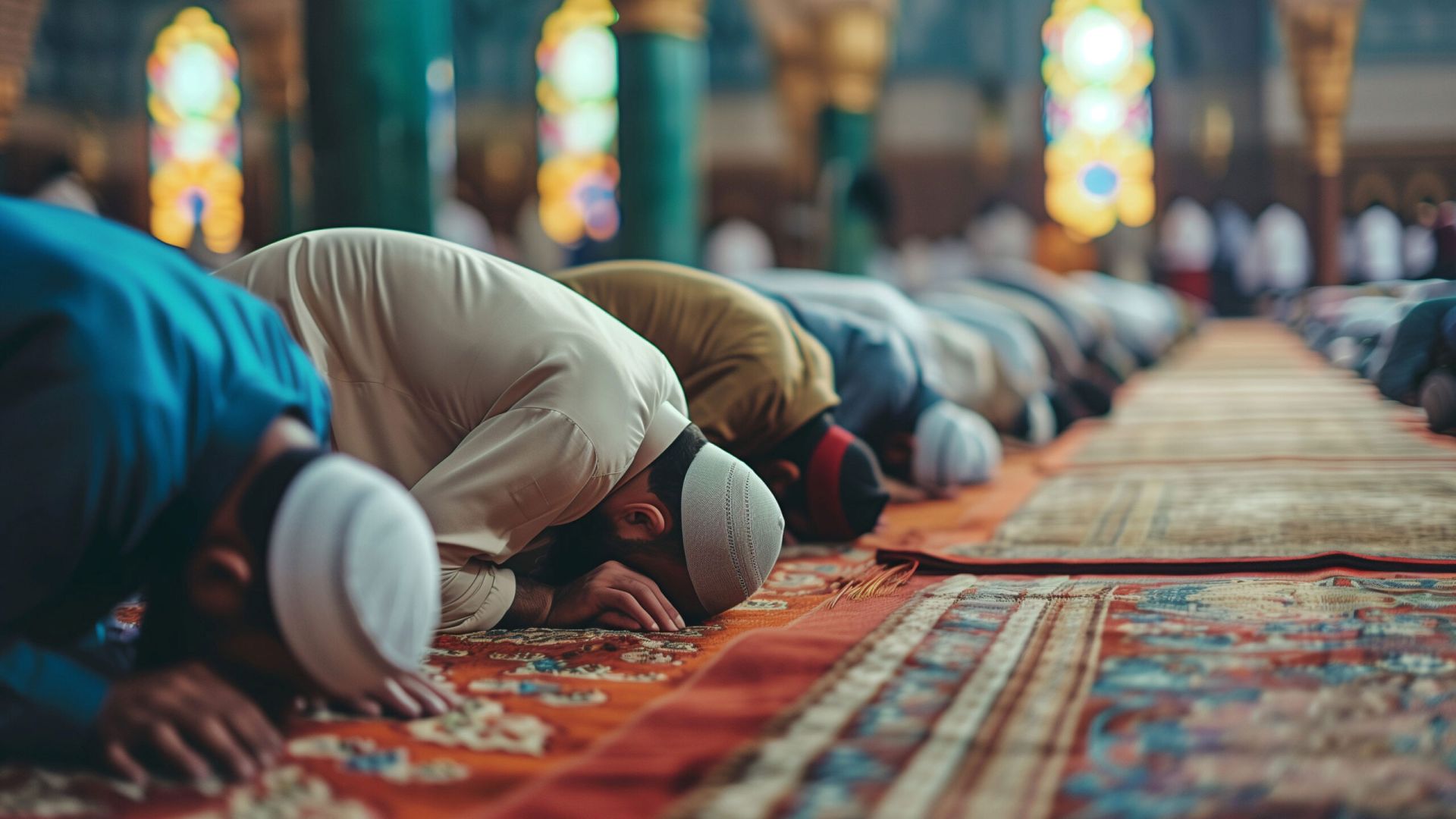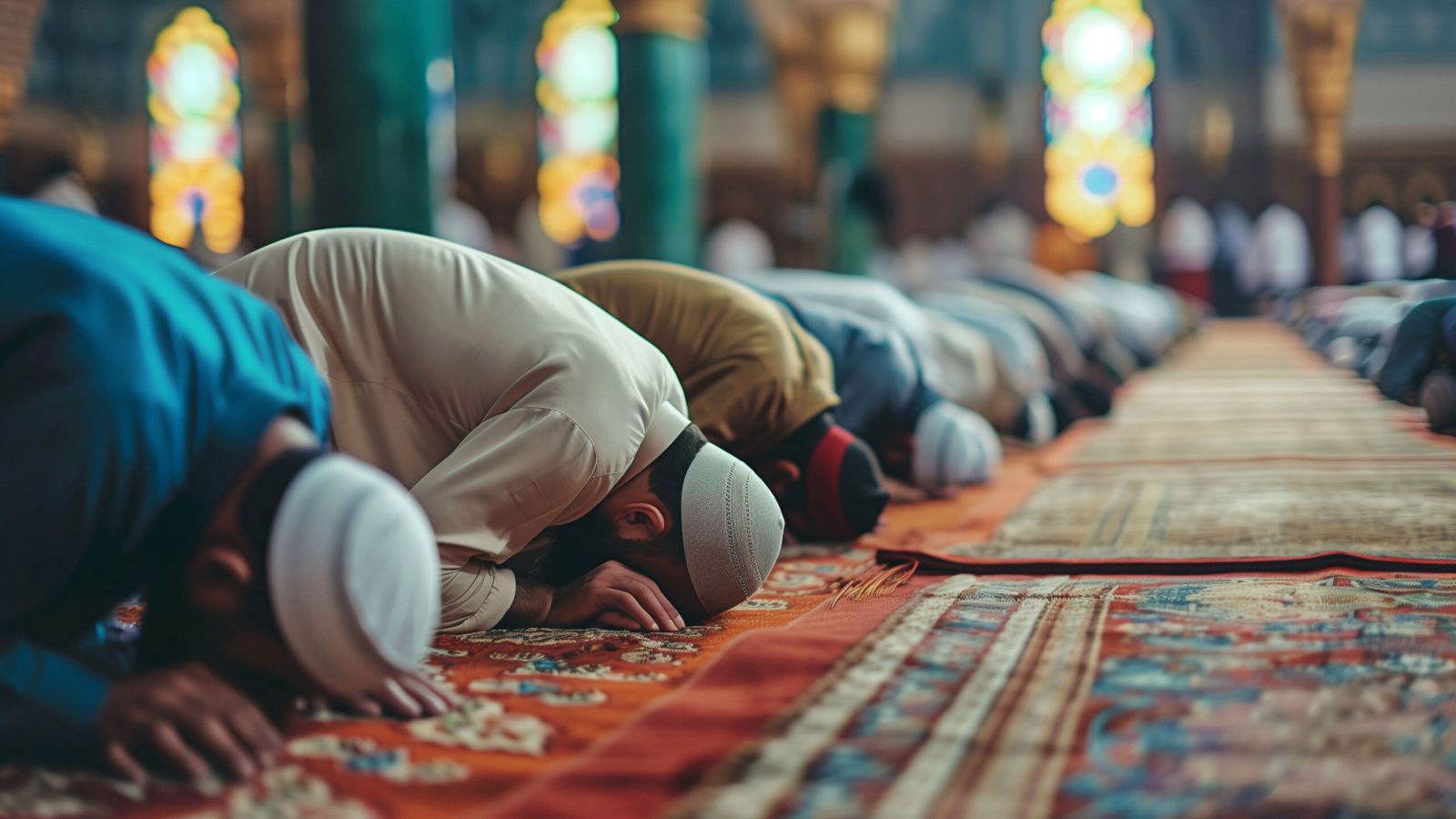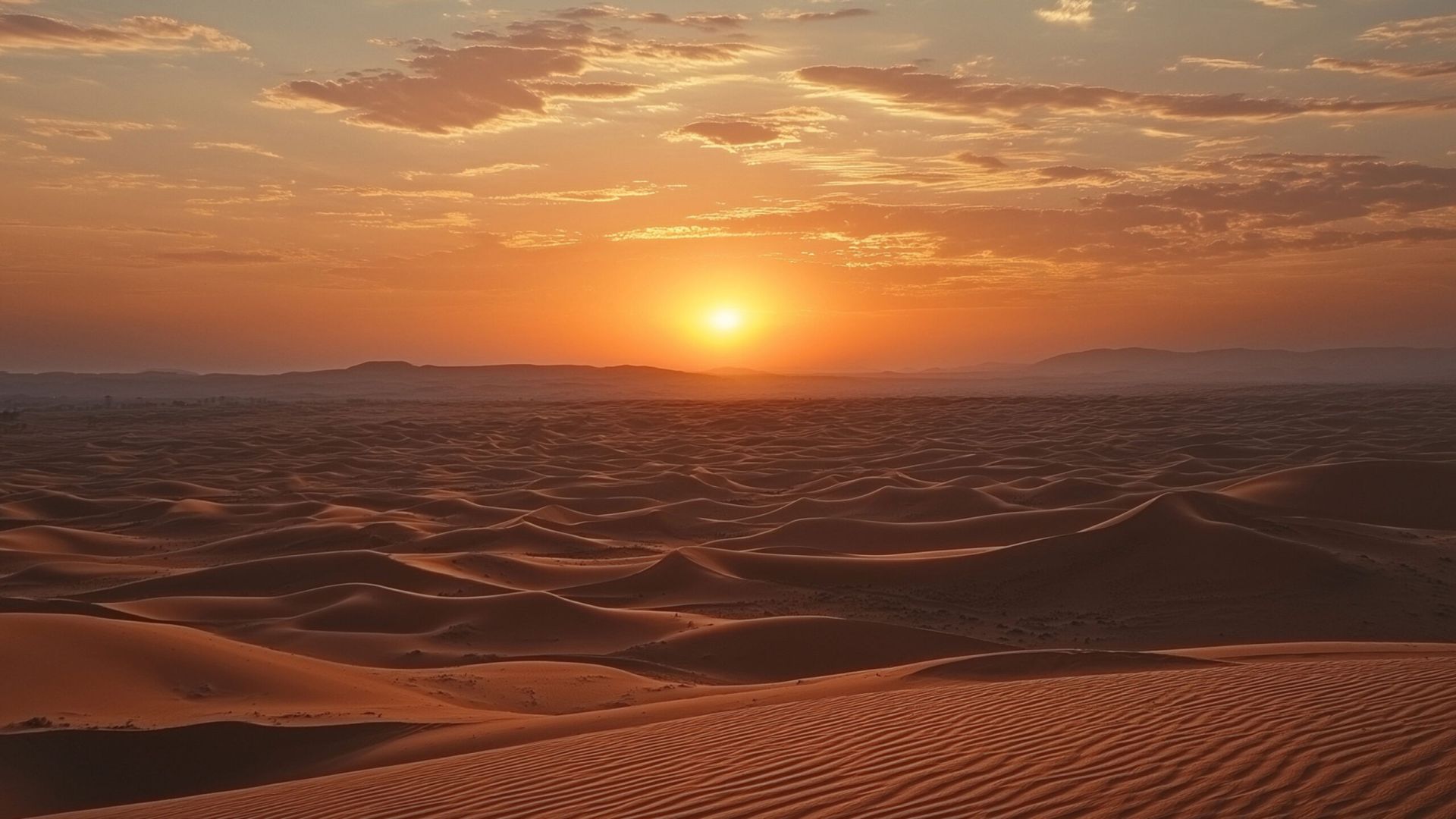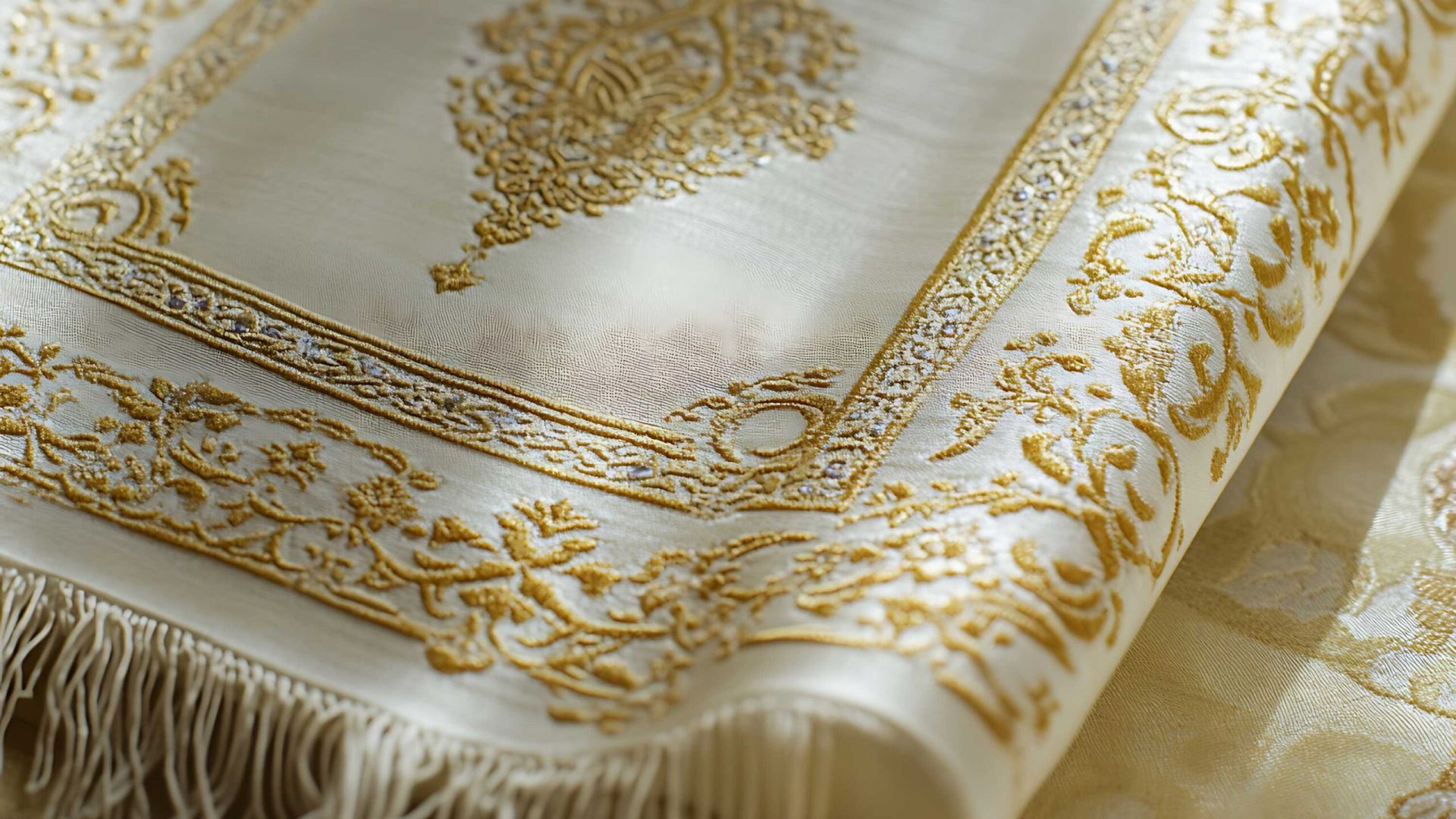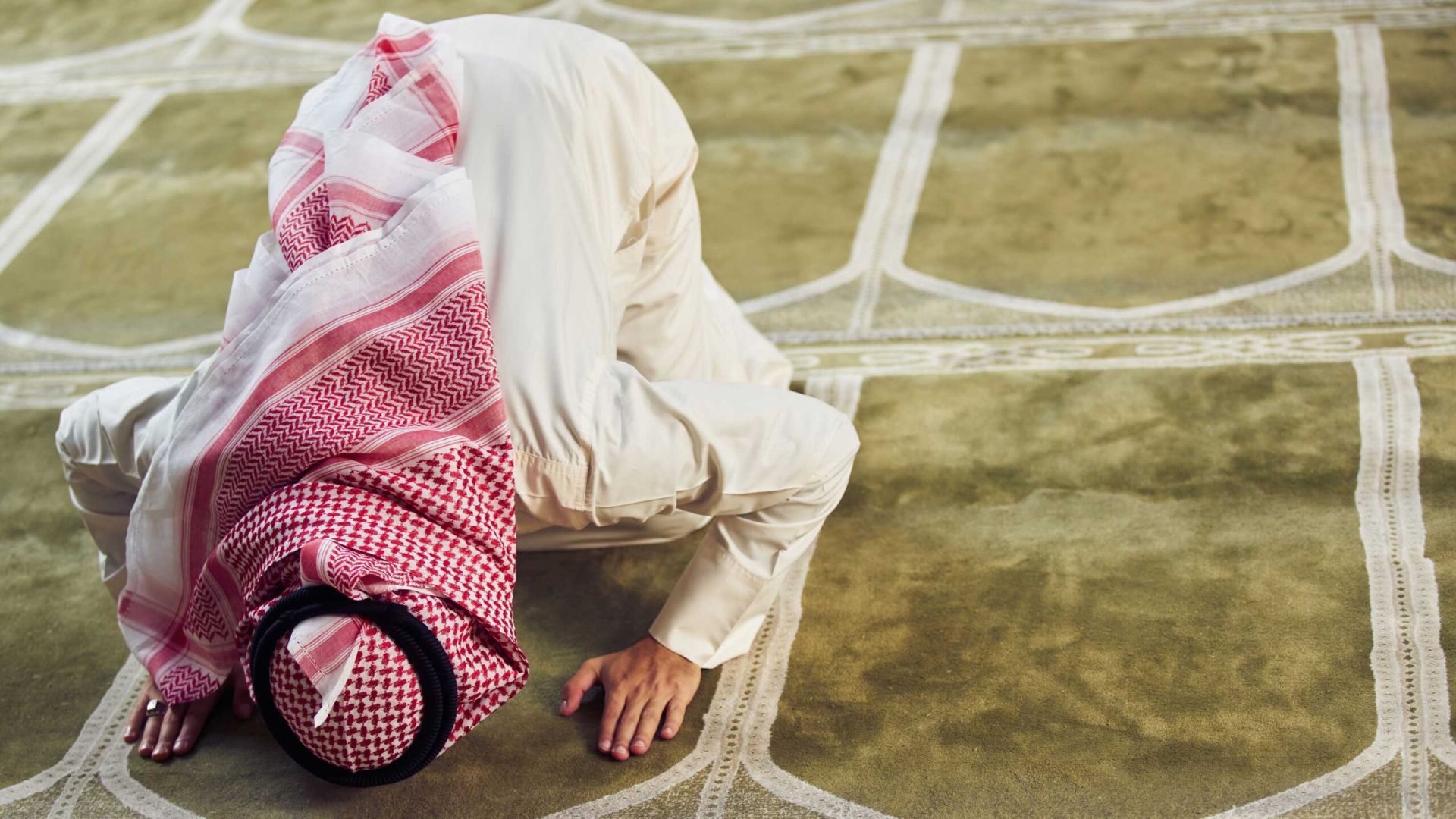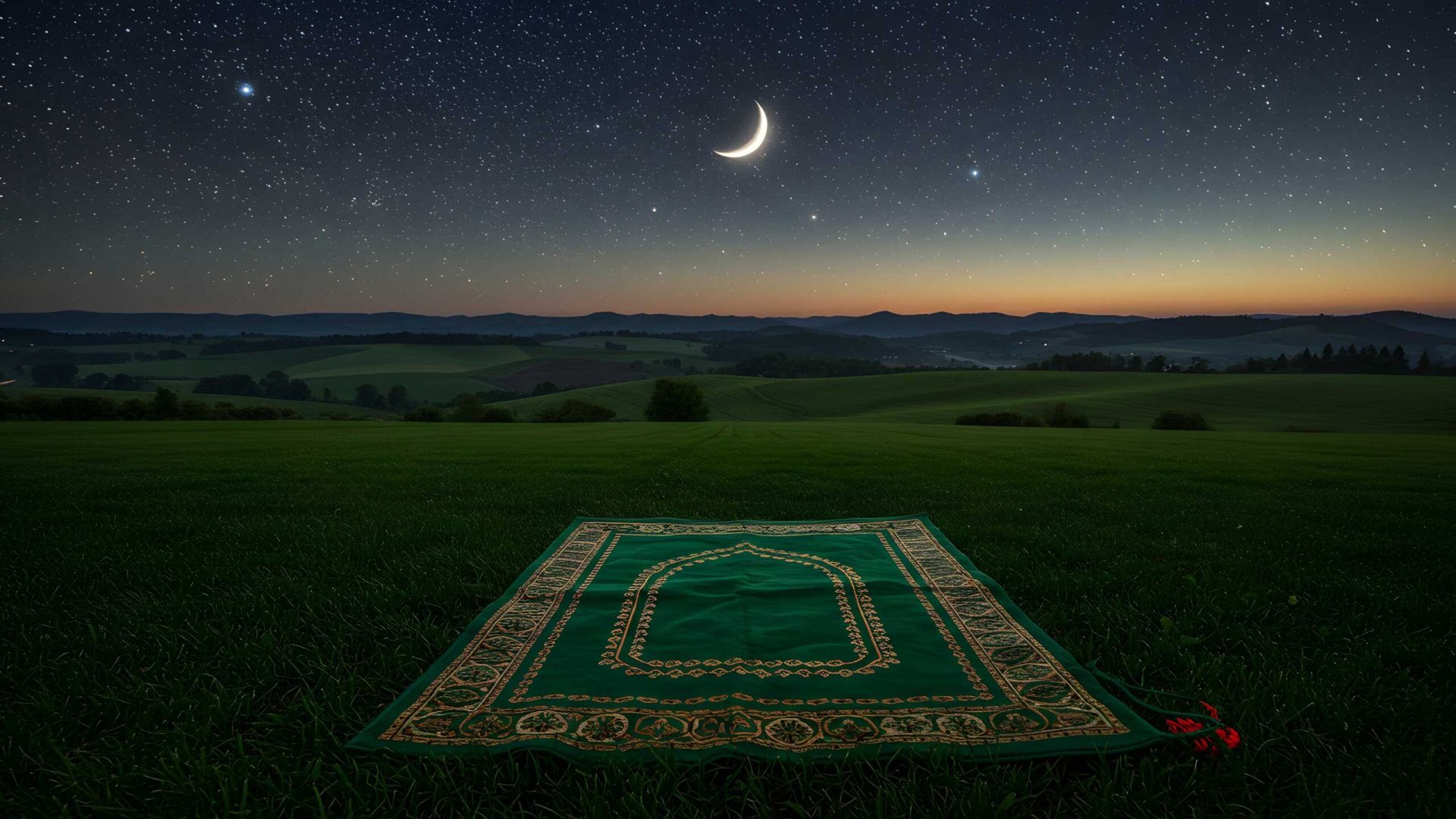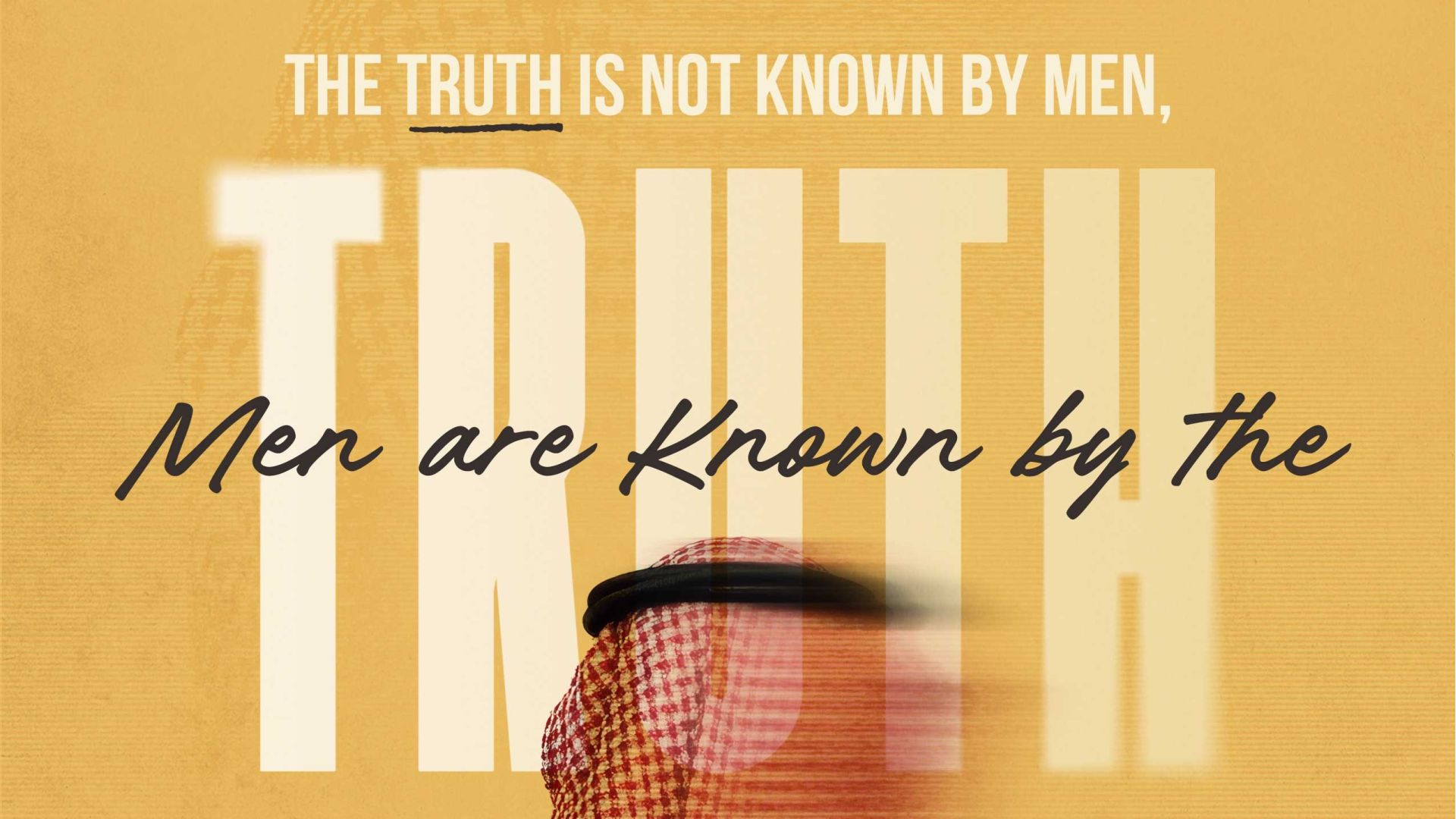The Biography of the Prophet Muḥammad (ﷺ)
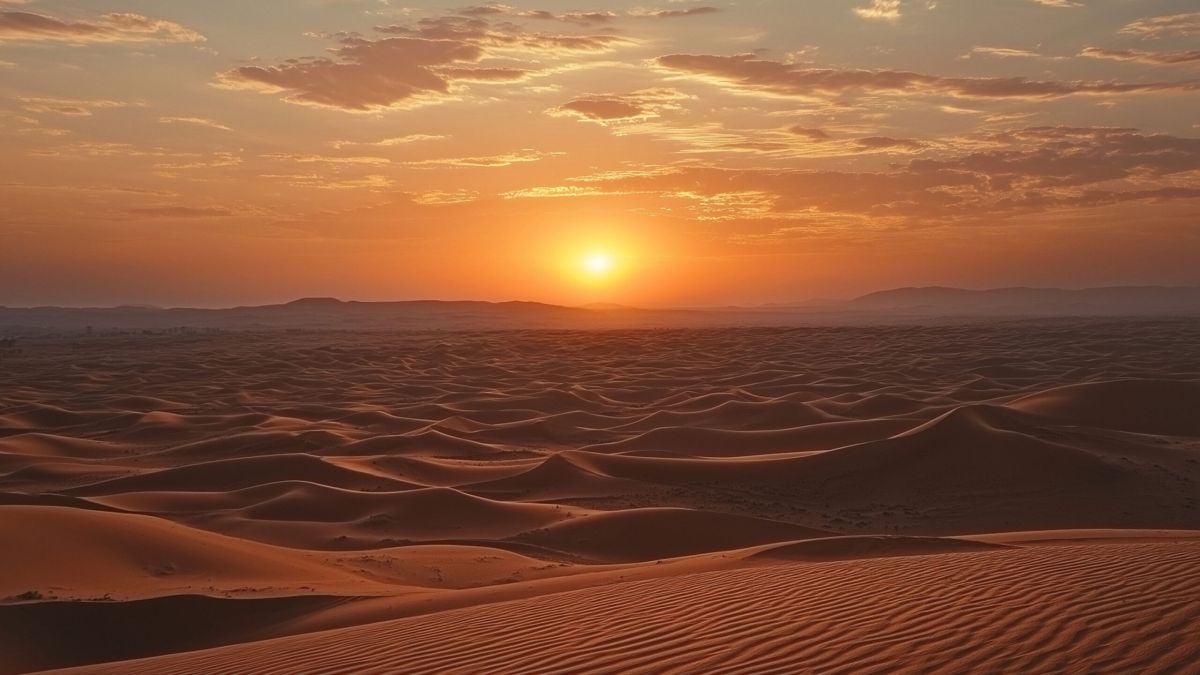

His Noble Lineage and Sublime Beginnings
Allāh—the Most High—said:
اللَّهُ أَعْلَمُ حَيْثُ يَجْعَلُ رِسَالَتَهُ
“Allāh knows best with whom to place His message”
(Al-Anʿām, 6:124)
Al-ʿAllāmah Ṣaliḥ bin Fawzān explains:
Allāh—the Glorified, the High—selected Muḥammad (صلى الله عليه وسلم) specifically among all other people for the delivery of His message, and “Allāh knows best with whom to place His message” such that He only chooses those who are specifically deserving of being chosen for it. Entrusting the delivery of this message to one who will undoubtedly fulfil the mission with which he was tasked. For this is an extremely trying, monumentally difficult mission, such that Allāh shall never select one who is undeserving of fulfilling its responsibility.1
The Nobility of His (ﷺ) Lineage
When Hiraql (of Rome) sought his (صلى الله عليه وسلم) description from Abū Sufyān, he asked him a series of questions. Among them, he asked: “What is the calibre of his lineage amongst your tribes?” Abu Sufyān replied: “He is the descendant of a noble lineage”. So Hiraql replied: “That is the state of all messengers. They always hailed from the noblest of lineages amongst their respective nations.”2 That is, they were born into the largest tribes, ascribed to nobility and honour, held in high esteem and regard amongst their people. Thus, he (صلى الله عليه وسلم) is the leader of the Children of Ādam3 and the most honourable among them.
The Names of The Prophet Muḥammad (ﷺ)
He is Abū al-Qāsim4, Abū Ibrāhīm5, Muḥammad, Aḥmad, al-Māḥī (the One who Erases or Wipes Away) because of his (صلى الله عليه وسلم) erasure of disbelief, al-ʿĀqib (the Last of a Succession) for there is no prophet subsequent to him, al-Ḥāshir (the One who Gathers and Assembles) for mankind shall be resurrected after him6,7 al-Muqaffī (the One who follows; that is, follows all other prophets chronologically, or follows their guidance), Nabī al-Raḥmah (the Prophet of Mercy), Nabī al-Tawbah (the Prophet of Repentance),8 Nabī al-Mulhamah (the Prophet of War)9, Khatim al-Nabiyyīn (the Seal of Prophethood)10, and ʿAbdullāh (Allāh’s servant).11
Al-Bayhaqi said: In the Qurʾān, Allāh also named him Nabī (Prophet), Rasūl (Messenger), Ummī (Illiterate)12, Shāhid (Witness)13, Mubashshir (Giver of Glad Tidings), Nadhīr (Warner)14, Dāʿiyan ila-Allāh bi-idhnihi (Caller to Allāh’s Religion By His Leave), Sirājan Munīrā (Lamp Spreading Light [of the Qurʾān and the Sunnah])15, Raʾūfan Raḥīmā (Kind and Merciful)16, Mudhakkir (Reminder)17 and that Allāh made him a Rahmāh (Mercy)18, Niʿmah (Blessing)19 and Hadī (Guider).20
The Nobility of the Prophet’s (ﷺ) Lineage
He is the son of ʿAbdullāh, who was the son of ʿAbd al-Muṭṭalib, the son of Hāshim, the son of ʿAbd Manāf, the son of Quṣayy, the son of Kilāb, the son of Murrah, the son of Kaʿb, the son of Luʾayy, the son of Ghālib, the son of Fahr, the son of Mālik, the son of Naḍr, the son of Kinānah, the son of Khuzaymah, the son of Mudrikah, the son of Ilyās, the son of Muḍar, the son of Nizār, the son of Maʿd, who was the son of ʿAdnān. He is undoubtedly among the descendants of Ismāʿil (عليه السلام) although there is a difference of opinion regarding the exact number of forefathers that separate them.
This lineage is one that is unanimously agreed upon by the scholars. In fact, all Arab tribes that originate from the Ḥijāz region can trace their lineage back to these progenitors. For this reason, regarding the saying of the Most High:
قُل لَّا أَسْأَلُكُمْ عَلَيْهِ أَجْرًا إِلَّا الْمَوَدَّةَ فِي الْقُرْبَىٰ
“Say (O Muḥammad (صلى الله عليه وسلم)): ‘No reward do I ask of you for this except to be kind to me for my kinship with you.’”
(Al-Shūrá, 42:23)
Ibn ʿAbbās (رضي الله عنه) said: “There existed not a single subsidiary off-shoot from the tribes of Quraysh except that the Prophet (صلى الله عليه وسلم) could connect his lineage to them”.
Al-ʿAllāmah Muḥammad Amīn al-Shanqīṭī explains this āyah:
That is, that you show me kindness in relation to the kinship we share, such that you avoid harming me and protect me from the harm of others, akin to your behaviour with anyone else that shares the likeness of my kinship with you. For there was not a single subsidiary tribe of Quraysh that did not have someone among them that was related to him (صلى الله عليه وسلم). Therefore, the request in this āyah should not be misconstrued as him seeking payment or compensation for his delivery of Allāh’s message, as he (صلى الله عليه وسلم) delivered this message to everyone regardless of whether they were from the tribe of Quraysh or otherwise. Rather, everyone hopes to be treated with kindness by those who share kinship with them, protected by his family from the harm of outsiders. For example, this protection was shown in the actions of Abū Ṭālib, which was never implemented by him as as a means of compensating the Prophet (صلى الله عليه وسلم) for his delivery of the message of Islām.21
It was also narrated that the Prophet (صلى الله عليه وسلم) said: “I was born within the confines of wedlock, not the result of illegal sexual intercourse. This applies to every single one of my forefathers: from Ādam to when my mother and father conceived me. My lineage remains completely unmarred by the lascivious sexual intercourse that characterised the pre-Islamic period of ignorance”.22
Imām al-Ṣanʿānī comments:
In this ḥadīth, the Prophet (صلى الله عليه وسلم) informs us about himself and his forefathers, that he (صلى الله عليه وسلم) is the descendant of a pristine lineage, all his forefathers subsisting in untainted wombs. That is, no illegal sexual intercourse occurred at a single point throughout his entire lineage. Rather, his forefathers were all conceived within Islamic marriages. This has been clarified by the scholars, as there were four varieties of marriage that occurred during the pre-Islamic era of ignorance, one of which occurred in a manner akin to the methodology of an Islamic marriage.23
It was also authentically narrated that the Prophet (صلى الله عليه وسلم) said: “I was born among the best generations that has ever existed amongst the Children of Ādam. Generations passed, one after another, until I was brought forth in my generation”.24
Al-Ḥāfiẓ Ibn Ḥajar comments:
“Generation” here refers to a societal class of people that exist within a single period in time. There are also those that specifically define it as being limited to one-hundred years, while others limit it to seventy. Other durations are mentioned as well, with conflicting opinions ranging from a minimum of ten and a maximum of one-hundred and twenty years. After mentioning these opinions, al-Ḥarbī said: “In my view, a generation is only considered expired when completely destroyed, such that not a single living member of that society remains”.25
Imām al-Ṣanʿānī comments:
“Generations passed, one after another” that is, each generation passed, at varying levels of goodness in accordance with the will of the Most High, until He brought forth the Prophet (صلى الله عليه وسلم) from the very best of them.
If a person was to oppose this saying: Were there not leaders of disbelief in existence during his (صلى الله عليه وسلم) generation? We would answer by saying: The Prophet (صلى الله عليه وسلم) means by this ḥadīth that the best variety of people existed during his time period relative to all others, without specifically referring to each and every single living individual in his era. The greatness of his (صلى الله عليه وسلم) generation is attained only through following him, as the Most High said:
كُنتُمْ خَيْرَ أُمَّةٍ أُخْرِجَتْ لِلنَّاسِ
“You [real followers of Prophet Muḥammad (صلى الله عليه وسلم) and his Sunnah] are the best of peoples ever raised up for mankind.”
(Āli-ʿImrān, 3:110)
Or this ḥadīth may be interpreted to mean that within his (صلى الله عليه وسلم) generation are a people who possess the purest, most pristine natures, their minds and intellects well-balanced, naturally inclined towards the truth, whose manners are exemplary, characterised by honourable souls of nobility, and high-mindedness (more so than any other generation before them).26
And Imām Muslim narrated on the authority of Wāthilah ibn al-Asqaʿ (رضي الله عنه) that the Messenger of Allāh (صلى الله عليه وسلم) said: “Indeed, Allāh selected the children of Kinānah from among (Prophet) Ismāʿīl’s progeny. Then, He selected the tribe of Quraysh from among the children of Kinānah. Then, He selected the children of Hishām from among the tribe of Quraysh. Then, He selected me from among Hishām’s children”.27
Imām al-Ṣanʿānī comments:
This ḥadīth is proof that it is permissible for one to inform another regarding the nobility of his lineage, that it is a manifestation of informing others of Allāh’s favours and blessings. As for Allāh’s “selection” of the tribes mentioned here, it is referring to the fact that mankind must now return to the scion of this lineage for [guidance and Islām], and that Allāh has historically made them a people characterised by goodness, honour, generosity and bravery.28
Al-ʿAllāmah Muḥammad ibn ʿAlī ibn Ādam al-Ithyūbī comments:
As al-Qurṭubī—may Allāh have mercy on him—said, Allāh chooses whomever He wills from His creation, specifically imbibing them with qualities of perfection that become a foundation in that sphere of completion. This honouring of those He selected is in accordance with His divine, all-encompassing knowledge, His ruling implemented and applied to His selection while not itself incumbent upon Him, nor is He compelled to do so. Rather, the matter is as He said:
وَرَبُّكَ يَخْلُقُ مَا يَشَاءُ وَيَخْتَارُ
“And your Lord creates whatsoever He wills and chooses”.
(Al-Qaṣaṣ, 28:68)
Just as Allāh has chosen the Children of Ādam among all other living things in the animal kingdom. As the Most High said:
وَلَقَدْ كَرَّمْنَا بَنِي آدَمَ وَحَمَلْنَاهُمْ فِي الْبَرِّ وَالْبَحْرِ وَرَزَقْنَاهُم مِّنَ الطَّيِّبَاتِ وَفَضَّلْنَاهُمْ عَلَىٰ كَثِيرٍ مِّمَّنْ خَلَقْنَا تَفْضِيلًا
“And indeed We have honoured the Children of Ādam, and We have carried them on land and sea, and have provided them with al-Ṭayyibāt (lawful good things), and have preferred them above many of those whom We have created with a marked preference.”
(Al-Isrāʾ, 17:70)
Sufficient evidence for the selection of the Children of Ādam over all else may be derived from the mere fact that this entire world was created just for their benefit, as Allāh explicitly stated:
وَسَخَّرَ لَكُم مَّا فِي السَّمَاوَاتِ وَمَا فِي الْأَرْضِ جَمِيعًا مِّنْهُ
“And has subjected to you all that is in the heavens and all that is in the earth; it is all as a favour and kindness from Him.”
(Al-Jāthiyah, 45:13)
Following His selection of the Children of Ādam, Allāh selected from among them those that would serve as vessels of prophethood, placeholders for His message to the rest of mankind. The first of them being Ādam (عليه السلام), from whom He selected the noblest drops of semen, that would subsequently be transferred from the noblest loins of men to only the purest of wombs, to give rise to those who would serve as His prophets and messengers. As the Most High said:
إِنَّ اللَّهَ اصْطَفَىٰ آدَمَ وَنُوحًا وَآلَ إِبْرَاهِيمَ وَآلَ عِمْرَانَ عَلَى الْعَالَمِينَ﴿٣٣﴾ ذُرِّيَّةً بَعْضُهَا مِن بَعْضٍ ۗ وَاللَّهُ سَمِيعٌ عَلِيمٌ ﴿٣٤﴾
“Allāh chose Ādam, Nūḥ (Noah), the family of Ibrāhīm (Abraham) and the family of ʿImrān above the ʿālamīn (mankind and jinns) (of their times). Offspring, one of the other, and Allāh is the All-Hearer, All-Knower.”
(Āli-ʿImrān, 3:33-34)
Then, Allāh selected Ismāʿīl and Isḥāq from among the children of Ibrāhīm (عليه السلام) as He said:
إِنَّا أَوْحَيْنَا إِلَيْكَ كَمَا أَوْحَيْنَا إِلَىٰ نُوحٍ وَالنَّبِيِّينَ مِن بَعْدِهِ ۚ وَأَوْحَيْنَا إِلَىٰ إِبْرَاهِيمَ وَإِسْمَاعِيلَ وَإِسْحَاقَ
“Verily, We have inspired you (O Muḥammad (صلى الله عليه وسلم)) as We inspired Nūḥ (Noah) and the Prophets after him; We (also) inspired Ibrāhīm (Abraham), Ismāʿīl (Ishmael), Isḥāq (Isaac)”
(Al-Nisāʾ, 4:163)
Then Allāh selected the children of Kinānah from among Ismāʿīl’s progeny as mentioned by the Prophet (صلى الله عليه وسلم) here. Then Allāh chose one who would serve as the seal of prophethood, designated as their imām, honoured with a book superior to all that preceded his, the quintessential core of their order, akin to the sun that dazzles with its brightness, the full moon of their night, their crown jewel—Muḥammad (صلى الله عليه وسلم). He is the last of them chronologically but precedes them in level and standing before Allāh. For He granted the Prophet (صلى الله عليه وسلم) the station of intermediary, perfecting the noble assembly of prophets by means of his (صلى الله عليه وسلم) perfection, specifically granting him a station of praise and glory (Maqāmā Maḥmūdā) on the witnessed Day (of Judgement). He will intercede on their behalf when asked, he will lead them when the creation seeks an emissary (for respite from the horrors of the Day of Judgment), he is the announcer among them when they gather before him, their leader when the order of prophethood is mentioned. He (صلى الله عليه وسلم) is the recipient of the primest allotment of goodness, possessor of the flag of praise, Ādam (عليه السلام) and the rest of mankind inferior in rank to him (صلى الله عليه وسلم).29
It was also narrated on the authority of al-Abbās who said: The Prophet (صلى الله عليه وسلم) said: “I am Muḥammad ibn ʿAbdullāh ibn ʿAbd al-Muṭṭalib. Indeed, Allāh is the One who originated this creation and He orchestrated my birth among the best of His creation. He divided His creation into two parties and made me from the best of the two. He created tribes and made me to be from the very best tribe. He made homes for them and facilitated me being in the best of these homes. So I hail from the best households and I am the best of you”.30
Imām al-Manāwī said,
Shaykh al-Islām Ibn Taymiyyah explains:
There are several possible interpretations with regards to his (صلى الله عليه وسلم) saying “originated this creation”:
- The “creation” being referred to here are mankind and jinn (al-Thaqalān).
- “Creation” here encompasses every living thing on earth, of which the Children of Ādam are the best. If this encompasses even the angels, then this ḥadīth is proof that the Children of Ādam are superior even to them.
- “Creation” refers only to the Children of Ādam and “my birth among the best of His creation” refers to him (صلى الله عليه وسلم) being born among the descendants of Ibrāhīm, the father of all the Arabs.
“Two parties”: It may be interpreted as referring to Arabs and foreigners. Then the Arabs were divided into tribes and Quraysh was made the most superior household among them, and the Children of Hāshim the best of them.
“Two parties” may also be interpreted as referring to the progeny of Ismāʿīl and Isḥāq, or that the Arabs themselves were divided into the descendants of ʿAdnān and Qaḥṭān with the descendants of Ismāʿīl tracing their lineage back to ʿAdnān. Then, the descendants of Ismāʿīl or ʿAdnān were divided into “tribes” and he (صلى الله عليه وسلم) was “ …from the very best tribe”, that is, Quraysh. Whichever interpretation is taken, the ḥadīth explicitly indicates the superiority of Arabs over other nations (in terms of lineage due to their relation to Allāh’s Prophets and Messengers).
The Prophet (صلى الله عليه وسلم) then said: “And I”—by Allāh’s blessings which he has bestowed and His kindness whose implementation was predestined, present in His infinite knowledge—“am the best of you” that is, in terms of his (صلى الله عليه وسلم) self and soul. For Allāh has made him both a prophet and a messenger, the one who opens the doors of guidance to this ummah and seals the order of prophethood.
“Facilitated me being in the best of these homes”: That is, the best origins. As I am a descendant of perpetually chaste unions, occurring one after another until my father ʿAbdullāh, all out of lawful marriage uncontaminated by illegal sexual intercourse. Note here that he (صلى الله عليه وسلم) did not say “without pride” as he said in another ḥadīth. This is concordant with the circumstance of those he was speaking to whose hearts were pristinely clear from ascribing that which is inappropriate to him due to their awareness and acquaintance with his (صلى الله عليه وسلم) true state.31
And it was authentically confirmed that the Messenger of Allāh (صلى الله عليه وسلم) said: “I am—without pride—the leader of the Children of Ādam on the Day of Resurrection”.32
Jalāl al-Dīn al-Suyūṭī narrated from al-Nawawī who explains:
Al-Harawī said: “Leader” is a term used to describe a person whose goodness is superior to all others in his community.’ While others say: ‘It refers to the person with whom refuge is sought in times of hardship, the one they flee to when afflicted with catastrophe. He orders their affairs and demonstrates forbearance when faced with that which is detestable to them, allaying their fears..’
“On the Day of Resurrection”: He (صلى الله عليه وسلم) has specifically confined his leadership here to the Day of Resurrection despite his status existing in this life and the hereafter because it is on the Day of Resurrection specifically that his role of leadership shall become unquestionably apparent and completely unopposed. This is contrary to the state of affairs in this world wherein there are disbelieving kings, rulers, or polytheist leaders that oppose his (صلى الله عليه وسلم) position of authority and superiority. This statement is akin to the saying of the Most High:
لِّمَنِ الْمُلْكُ الْيَوْمَ ۖ لِلَّهِ الْوَاحِدِ الْقَهَّارِ
“Whose is the kingdom this Day? (Allāh Himself will reply to His question): ‘It is Allāh’s—the One, the Irresistible!’”
(Ghāfir, 40:16)
Even though Allāh’s ownership over the creation preceded that day. This is a form of exhortation to those in this world who would deign to claim ownership or sovereignty for themselves—whether explicitly or implicitly—such that their claims of dominion are severed, completely disproven in the hereafter.
“Without pride”: that is, not vaingloriously seeking to ascribe greatness to himself. Pride also applies to the one who boasts about that which is external to himself, like one’s wealth or reputation. This statement is interpreted in one of two ways:
- He (صلى الله عليه وسلم) made this statement as a means of implementing Allāh’s command:
وَأَمَّا بِنِعْمَةِ رَبِّكَ فَحَدِّثْ
“And proclaim the grace of your Lord (i.e. the prophethood and all other graces).”
(Al-Ḍuḥá, 93:11) - It was said as a means of clarification to his ummah—one that he (صلى الله عليه وسلم) was encouraged to deliver and inform them regarding—such that they may recognise it, believe in it, and act in accordance with it, such that they show him the respect and veneration that he (صلى الله عليه وسلم) is deserving of. That is, he (صلى الله عليه وسلم) said this as a means of informing his ummah of the blessings and leadership position that he was honoured with by Allāh. He (صلى الله عليه وسلم) said it as a way of informing them of Allāh’s grace granted to him, informing his ummah such that they believe in it and treat him (صلى الله عليه وسلم) accordingly. For this reason, he (صلى الله عليه وسلم) immediately followed this statement with the caveat of “without pride”, that is, I was only granted this blessing as a favour from Allāh, not from myself, nor did I attain it by my own might and power. Thus, it is most unbefitting of me to be prideful with regards to the status I have been granted.33
May Allāh praise and commemorate him in the highest assembly always and forever until the Day of Recompense.34
Endnotes:
[1] Source: Al-Taʿlīqāt al-Mukhtaṣarah ʿalá al-ʿAqīdat al-Ṭahāwiyyah: 59.
[2] Authentic: narrated by al-Bukhārī: 7
[3] Referencing the authentic ḥadīth with this wording as narrated by Muslim: 2278.
[4] Authentic: narrated by al-Bukhārī: 3538
[5] Narrated by al-Bayhaqī in Dalāʾil al-Nubuwwah 1:164
[6] Authentic: for the names Muḥammad, Aḥmad, al-Māḥī, al-Ḥashir, and al-Āqib, see al-Bukhārī: 3532.
[7] Referencing the authentic ḥadith in which he (صلى الله عليه وسلم) said that he will be the first to part the earth above his grave on the Day of Resurrection. See Muslim: 2278.
[8] Authentic: for the names Muḥammad, Aḥmad, al-Muqaffī, al-Ḥāshir, Nabī al-Tawbah, and Nabī al-Raḥmah, see Muslim: 2355.
[9] Authentic: narrated by al-Tabarānī in al-Awsaṭ: 2716 and graded authentic by Shaykh al-Albānī in al-Sirāj al-Munīr: 3928.
[10] Referencing al-Aḥzāb, 33:40.
[11] Referencing several places in the Qurʾān including: al-Isrāʾ, 17:1 and al-Furqān, 25:1.
[12] Al-Aʿrāf 7:157 and Aḥzāb 33:45
[13] Hūd 11:17
[14] Aḥzāb 33:45
[15] Aḥzāb 33:46
[16] Tawbah 9:128
[17] Ghāshiyah 88:21
[18] Al-Anbiyāʾ 21:107
[19] Al-Ḍuḥá 93:11
[20] Al-Shūrá 42:52
[21] Source: Dafʿ Īhām al-Iḍṭirāb: 263.
[22] Ḥasan: narrated by al-Ṭabarānī in al-Awsaṭ: 4728 and graded Ḥasan by Shaykh al-Albānī in Ṣaḥīḥ al-Jāmiʿ al-Ṣaghīr: 3225.
[23] Source: Al-Tanwīr 5:474.
[24] Authentic: narrated by al-Bukhārī: 3557.
[25] Source: Fatḥ al-Bāri 6:574.
[26] Source: Al-Tanwīr 4:552.
[27] Authentic: narrated by Muslim: 2276.
[28] Source: Al-Tanwīr 3:268.
[29] Source: Al-Baḥr al-Muḥīṭ 37:184-185.
[30] Authentic: narrated by Aḥmad: 1788 and al-Tirmidhī: 3607 and graded authentic by Shaykh al-Albānī in al-Sirāj al-Munīr.
[31] Source: Fayḍ al-Qadīr 2:232.
[32] Authentic: narrated by Muslim: 2278 without the addition of ‘without pride’. The ḥadīth with this addition is narrated by Ibn Ḥibbān: 5146 and graded authentic by Shaykh al-Albānī in al-Ṣaḥīḥah: 1571.
[33] Source: Qūt al-Mughtadhī 2:781.
[34] Source: Ṣaḥīḥ al-Sīrah: 9-12.
Compiled and translated by: Riyāḍ al-Kanadī
Most Popular: Last 30 Days
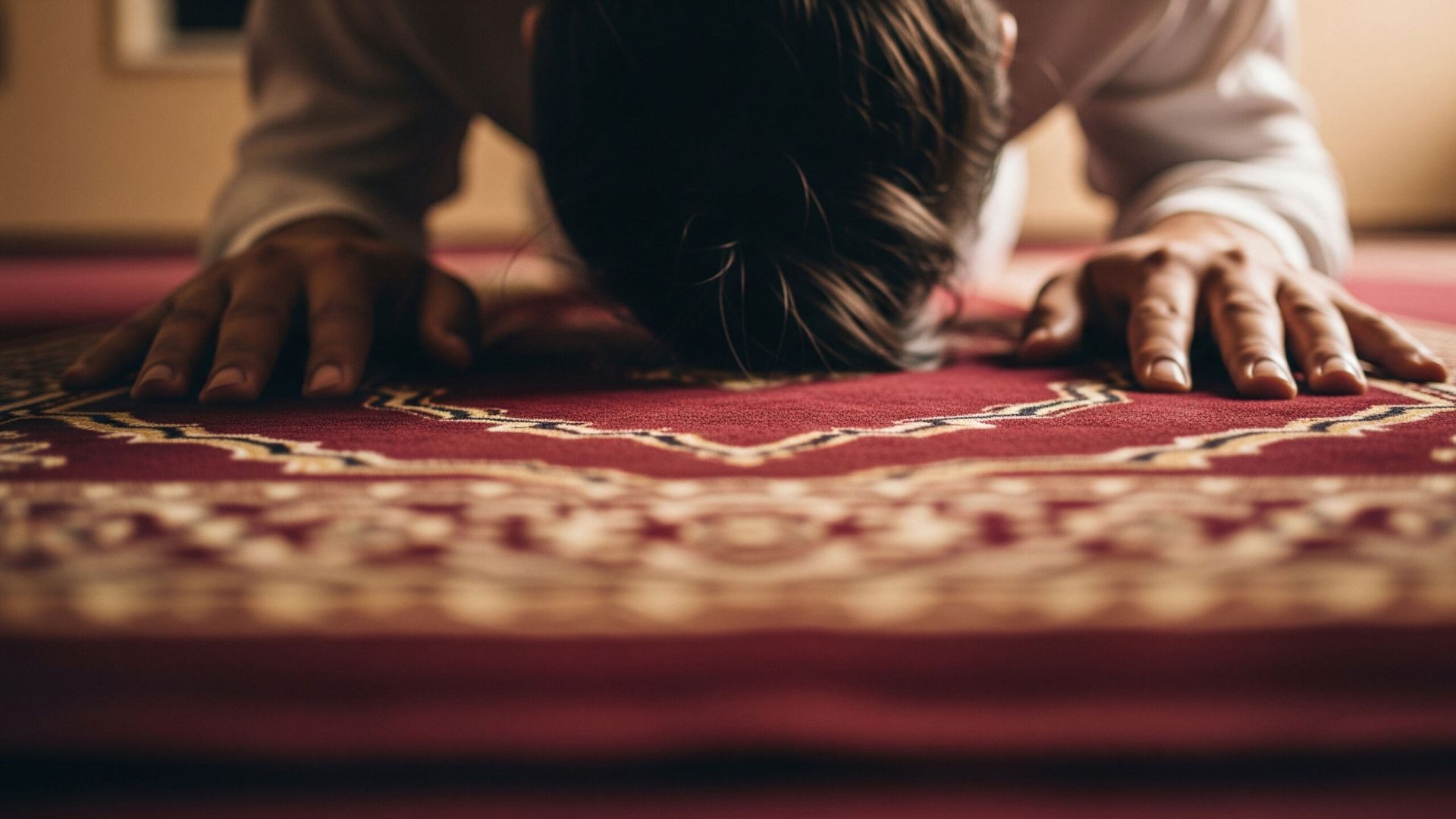
Rulings on Preventing a Person (or Animal) from Passing Before a Praying Person
